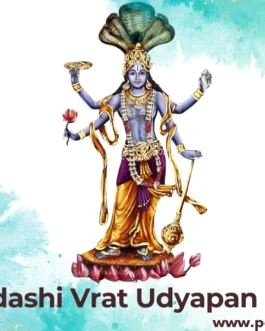Griha Pravesh Puja | Pandit For Griha Pravesh Puja
₹6,800.00 ₹55,500.00Price range: ₹6,800.00 through ₹55,500.00
Griha Pravesh Puja (Housewarming Ceremony) Service
Celebrate the auspicious entry into your new home with a traditional Griha Pravesh Puja. Our expert priests ensure a seamless, spiritually enriching experience by performing this sacred Hindu ritual, designed to purify your space, invite divine blessings, and protect your home from negative energies. Offering Rashi & Nakshatra-based Muhurat, customizable timing, and all essential puja materials, we provide a hassle-free solution to make your housewarming truly special. Start your new chapter with prosperity, peace, and harmony. Book your Griha Pravesh Puja today with PanditJi On Way for a blessed new beginning.
Description
Griha Pravesh Puja | Pandit For Griha Pravesh Puja
The Griha Pravesh Puja, or housewarming ceremony, is one of the most important and spiritually enriching rituals in Hinduism. It marks the auspicious occasion of entering a new home for the first time. This sacred ceremony is performed with the intention of welcoming positive energies, divine blessings, and prosperity into the home. The ritual is deeply embedded in Hindu culture and is considered essential for ensuring that the new house remains filled with peace, health, and happiness.
Purpose and Significance of Griha Pravesh Puja
The central purpose of Griha Pravesh Puja is to purify the new home and its occupants. According to Hindu tradition, every home is seen as a temple, and it is believed that the energies present within a home significantly influence the health, well-being, and prosperity of the family residing there. The ceremony ensures that the home is free from any negative influences and filled with divine energy. This purification process not only welcomes the positive energies of the deities but also protects the house and family from ill fortune.
Griha Pravesh Puja is important for many reasons:
- Purification of the Home: It removes any lingering negative energy from the house, ensuring the environment is clean, harmonious, and ready for the family to settle in.
- Welcoming Divine Energy: The ceremony invites the blessings of various deities, including Lord Ganesha for the removal of obstacles, Goddess Lakshmi for wealth and prosperity, and Lord Vishnu for overall peace and harmony.
- Ensuring Prosperity: By invoking the divine presence, the puja helps bring wealth, good health, success, and peace to the new home.
- Positive Vibes: It aligns the energies within the house, creating an atmosphere of well-being, peace, and positivity.
The Rituals of Griha Pravesh Puja
Griha Pravesh Puja is a highly detailed and sacred ritual, which includes several key elements, all of which are integral to making the ceremony successful and beneficial for the homeowners.
- Auspicious Muhurat (Timing): The timing of the Griha Pravesh Puja is crucial. The ritual is ideally performed during a favorable time, known as the “Muhurat,” which is chosen based on astrological factors like the homeowner’s Rashi (zodiac sign) and Nakshatra (lunar mansion). A priest will consult these astrological details to pick the most auspicious time for the ceremony, ensuring maximum spiritual benefits.
- Welcoming the Gods: The puja begins with an invocation to various deities, inviting them to bless the home. The deities, including Lord Ganesha, Goddess Lakshmi, and Lord Vishnu, are called upon to bring prosperity, happiness, and well-being to the new home.
- Purification of the Home: To cleanse the home of negative energies, the priest will perform a purification ritual using sacred items such as water, incense, and camphor. This purification is an essential part of the ceremony, as it prepares the space for positive energies to enter.
- Jaap (Chanting of Mantras): The priest chants sacred mantras to invoke divine blessings. The mantras are recited with devotion and reverence, bringing peace and prosperity to the home. The chanting is believed to establish a harmonious atmosphere and attract positive vibrations.
- Havan (Fire Ceremony): A key aspect of the Griha Pravesh Puja is the Havan (or Yajna) – a sacrificial fire ceremony. During the Havan, offerings such as ghee, sesame seeds, and other auspicious materials are poured into the fire while prayers are recited for the well-being of the family. This fire ceremony is believed to purify the space and protect the home from any negative influences.
- Sankalpa (Resolution): The homeowner expresses gratitude for the blessings received and asks for prosperity, health, and harmony in their new abode. This resolution represents a fresh start and a commitment to making the house a peaceful and prosperous home.
- Daan (Charity): A customary part of the ceremony is the act of charity. Donations in the form of food, clothing, or money are made to the less fortunate, as charity is believed to increase blessings and positive karma.
Why is Griha Pravesh Puja Essential?
- Protection from Negative Energies: Residual energies from the previous owners or the construction process can negatively affect the home. The Griha Pravesh Puja cleanses the space, ensuring it remains free of any harmful energies.
- Bringing Prosperity and Luck: The ceremony invites divine energies that are believed to bless the home with good fortune, prosperity, and well-being. It sets the stage for health, success, and happiness.
- Creating Harmony and Peace: Griha Pravesh Puja fosters unity among family members and creates a peaceful, balanced atmosphere in the new home.
What We Offer for Your Griha Pravesh Puja
At PanditJi On Way, we understand the importance of this special occasion and offer comprehensive services to ensure a smooth and memorable Griha Pravesh Puja experience.
- Complete Puja Materials: We provide all the essential items required for the puja, including sacred herbs, flowers, and other offerings.
- Rasi & Nakshatra-Based Muhurat: Our experienced priests will consult your astrological chart to choose the best timing for the puja, ensuring maximum benefit.
- Customizable Services: Whether you prefer the puja in the early morning or evening, we will adjust the timing and location to suit your convenience.
- Experienced and Certified Priests: Our priests are well-versed in performing all types of Vedic rituals and will guide you throughout the ceremony, ensuring every detail is executed with devotion.
- Vedic Standards: All pujas follow traditional Vedic standards and procedures, ensuring authenticity and spiritual integrity.
- Seamless Service: From preparation to execution, we manage all aspects of the puja, so you can focus on the joy of your new home without any worry.
Puja Samagri (Materials) for a Sacred and Successful Ceremony
The Puja Samagri refers to the essential materials used in performing Hindu rituals and ceremonies. These offerings and items are considered sacred and play a vital role in invoking divine blessings, ensuring that the puja is performed with devotion, reverence, and spiritual purity. The materials used in the puja vary depending on the type of ceremony but generally include a combination of sacred offerings, essential ritual items, and materials for performing the Hawan (fire ceremony).
At PanditJi On Way, we provide a complete range of authentic and high-quality Puja Samagri to ensure your ceremony is performed according to Vedic traditions, bringing peace, prosperity, and blessings into your home. Here’s a detailed list of the essential Puja Samagri materials:
Sacred Offerings for the Puja
These offerings are considered purifying and are used to invoke the blessings of various deities during the ceremony.
- Ghee: Used for lighting the sacred lamp and in the fire ceremony, symbolizing purity.
- Haldi (Turmeric Powder): A powerful purifier, often used to adorn idols and purify the space.
- Supari (Betel Nut): Symbolizes prosperity and is offered to deities to seek blessings for a fulfilling life.
- Kumkum & Sindoor: Red powder offerings that symbolize the energy of the deities, used during prayers and rituals.
- Moli (Sacred Thread): Tied around the wrist to signify protection, unity, and a strong bond with the divine.
- Honey: Represents sweetness and is offered to invoke a life filled with joy and prosperity.
- Mishri (Sugar Candy): Symbolizes sweetness in life and is used as an offering to the deities.
- Ganga Jal (Holy Water): Considered the purest form of water, used to purify the space and cleanse the soul.
- Gulab Jal (Rose Water): Offers a pleasant fragrance, enhancing the spiritual ambiance during rituals.
Essential Ritual Items for the Puja
These items are essential for performing the puja, ensuring that all aspects of the ceremony are completed according to tradition.
- Nariyal (Coconut): Represents the divine, offered to deities as a symbol of purity and good fortune.
- Kapus Vastra (Cotton Cloth): Used to cover the altar or idol, symbolizing purity and respect for the divine.
- Rice: A sacred offering used in various puja rituals, representing prosperity, fertility, and abundance.
- Laung (Cloves): Used for offerings and incense, believed to ward off evil energies.
- Elaichi (Cardamom): Adds fragrance and sweetness to the puja, symbolizing spiritual awakening.
- Peeli Sarso (Yellow Mustard Seeds): Used for purifying and protecting the ritual space.
- Panchamrit (Milk, Curd, Honey, Ghee, Sugar): A mixture of five ingredients used for purification and as an offering to deities, bringing divine blessings.
Hawan Samagri (Materials for the Sacred Fire Ceremony)
The Hawan (fire ceremony) is an integral part of many Hindu rituals. It is believed that the sacred fire purifies the environment, absorbs offerings, and carries prayers to the heavens. Here are the essential items used in the Hawan Samagri:
- Kala Til (Black Sesame): A key offering in the fire ceremony, believed to provide protection and remove negative energies.
- Jhao (Wooden Sticks): Used to fuel the sacred fire and symbolize the burning away of negative influences.
- Aam Ki Lakdi (Mango Wood): A pure wood used in the fire, believed to carry positive energy and blessings.
- Phool Mala (Flower Garland): Used to decorate the altar and offer a fragrant presence to the deities.
- Durva: A sacred grass offering, believed to bring prosperity, peace, and fulfillment.
- Belpata (Bael Leaves): These leaves are sacred to Lord Shiva and are often used in fire offerings to invoke divine blessings.
- Tulsi: Revered as a holy plant, Tulsi leaves are offered to deities to purify the atmosphere.
- Aam ka Patta (Mango Leaves): Symbolizing good fortune, prosperity, and protection, these leaves are commonly used in the puja and the Hawan.
Additional Puja Items
These materials are used to complete the puja, ensuring all aspects are covered with care and devotion.
- 5 Fruits: Symbolizing the five elements and offering nourishment to the body, mind, and soul.
- Sweets: Offered as a token of sweetness in life, symbolizing harmony and happiness.
- Kalash: A sacred pitcher filled with water, often adorned with mango leaves and a coconut, used to represent abundance and divine blessings.
- Deepak (Lamp): A sacred oil lamp that is lit during the puja to symbolize the removal of darkness (ignorance) and the arrival of light (knowledge).
- Thali: A plate used to place all the offerings, ensuring everything is kept in place for the ceremony.
- 2 Spoons: Used to offer ghee and other sacred items into the fire during the Hawan.
- 3 Bowls: Used for holding items like water, rice, or sacred materials during the puja.
- Aasan (Seat): A seat for the priest or the devotee to sit during the puja, symbolizing a place of spiritual sanctity.
The materials used in a Puja are not merely items, but sacred tools that help in invoking divine energy, ensuring spiritual purification, and promoting prosperity. Whether it’s Ghee, Honey, or Ganga Jal, each offering has a significant role in harmonizing the energies of the home and the devotees. Choose PanditJi On Way for all your Puja Samagri needs, and let us help you create a spiritually rich and prosperous atmosphere.
FAQ about Griha Pravesh Puja (Housewarming Ceremony)
1. What is Griha Pravesh Puja?
Answer: Griha Pravesh Puja is a sacred Hindu ritual performed when a person or family enters a new home for the first time. This housewarming ceremony seeks to invite divine blessings, ensure prosperity, and remove negative energies from the new house. It is an important spiritual practice that symbolizes a fresh beginning and a blessed life in the new home.
2. When is the best time for Griha Pravesh Puja?
Answer: The best time to perform Griha Pravesh Puja is during an auspicious “Muhurat.” The ideal time is determined based on the homeowner’s Rashi (zodiac sign) and Nakshatra (lunar mansion). A knowledgeable priest can consult astrological charts to choose the most favorable moment for the ceremony, ensuring that the puja aligns with positive cosmic energies.
3. Can Griha Pravesh Puja be performed if the house has already been occupied?
Answer: Yes, Griha Pravesh Puja can be performed even if the house has already been occupied. It is beneficial to conduct the puja at any point after moving into the new house, as it will purify the space, remove any negative energies, and invite divine blessings for prosperity, peace, and harmony.
4. What deities are worshipped during Griha Pravesh Puja?
Answer: The main deities worshipped during Griha Pravesh Puja are Lord Ganesha (for the removal of obstacles), Goddess Lakshmi (for wealth and prosperity), and Lord Vishnu (for peace and protection). Invoking their blessings is believed to bring success, happiness, and health to the new home.
5. How long does a Griha Pravesh Puja ceremony last?
Answer: The duration of the Griha Pravesh Puja ceremony typically lasts between 1.5 to 2 hours, depending on the number of rituals and the complexity of the ceremony. The puja involves chanting mantras, performing a havan (fire ceremony), and offering prayers to the deities, ensuring that the home is spiritually cleansed and protected.
6. Can I perform Griha Pravesh Puja myself, or do I need a priest?
Answer: While it is possible to perform Griha Pravesh Puja on your own, it is highly recommended to hire an experienced priest who is well-versed in Vedic rituals. A priest ensures that the puja is conducted correctly, following traditional practices and ensuring maximum spiritual benefits for the home and its inhabitants.
7. What materials are needed for Griha Pravesh Puja?
Answer: The materials needed for Griha Pravesh Puja typically include sacred herbs, incense, camphor, flowers, ghee, sesame seeds, and other auspicious offerings. At PanditJi On Way, we provide all the essential items required for the ceremony to make the process hassle-free and ensure that the puja is conducted smoothly.
8. Is Griha Pravesh Puja required for every new house?
Answer: While Griha Pravesh Puja is not mandatory for every new house, it is highly recommended for spiritual and cultural reasons. Performing the puja ensures the home is purified, protected from negative energies, and blessed with prosperity, peace, and good fortune.
9. Can Griha Pravesh Puja be conducted at any location?
Answer: Yes, Griha Pravesh Puja can be conducted at any location, whether it’s your new home or a rented space. We offer customizable puja services that can be performed at a location of your choice, ensuring that the ceremony is convenient and meaningful.
10. What are the benefits of Griha Pravesh Puja?
Answer: The benefits of Griha Pravesh Puja include:
- Purification of the home and removal of negative energies.
- Blessings for wealth, health, prosperity, and happiness.
- Protection from ill fortune and malefic influences.
- Creation of a harmonious and peaceful environment for the family.
- Spiritual well-being and positive vibrations in the new home.
11. Is there a specific day for Griha Pravesh Puja?
Answer: Griha Pravesh Puja can be performed on any day that falls within an auspicious Muhurat, typically determined by an astrologer. Popular days for Griha Pravesh Puja are during the waxing phase of the moon, particularly on days like Akshaya Tritiya, Diwali, or Gudi Padwa, when divine energies are believed to be most favorable.
12. What is the cost of Griha Pravesh Puja services?
Answer: The cost of Griha Pravesh Puja services varies depending on the complexity of the ritual, location, and additional offerings. At PanditJi On Way, we offer flexible pricing packages to suit your needs and budget. Our priests ensure that every aspect of the ceremony is performed with devotion, regardless of the package chosen.
Conclusion
Griha Pravesh Puja is more than just a housewarming event. It is a sacred ritual that invites blessings, prosperity, and protection into your new home. Whether you’re moving into a new house or simply want to ensure a positive and harmonious environment for your family, performing this puja with an experienced priest will help you set the right spiritual foundation.
For expert assistance in performing Griha Pravesh Puja and ensuring your new home is blessed, visit PanditJi On Way and book your ceremony today!
External Link: Learn more about the importance of Vedic rituals and ceremonies at Hinduism Today.
Additional information
| Package | Basic : (1 Panditji + All Puja Samagries), Economy : (2 Panditji + All Puja Samagries), Economy- 2 Days : (2 Panditji + All Puja Samagries), Standard : (5 Panditji + All Puja Samagries), Premium : ( 11 Panditjis + All Puja Samagries) |
|---|







Reviews
There are no reviews yet.